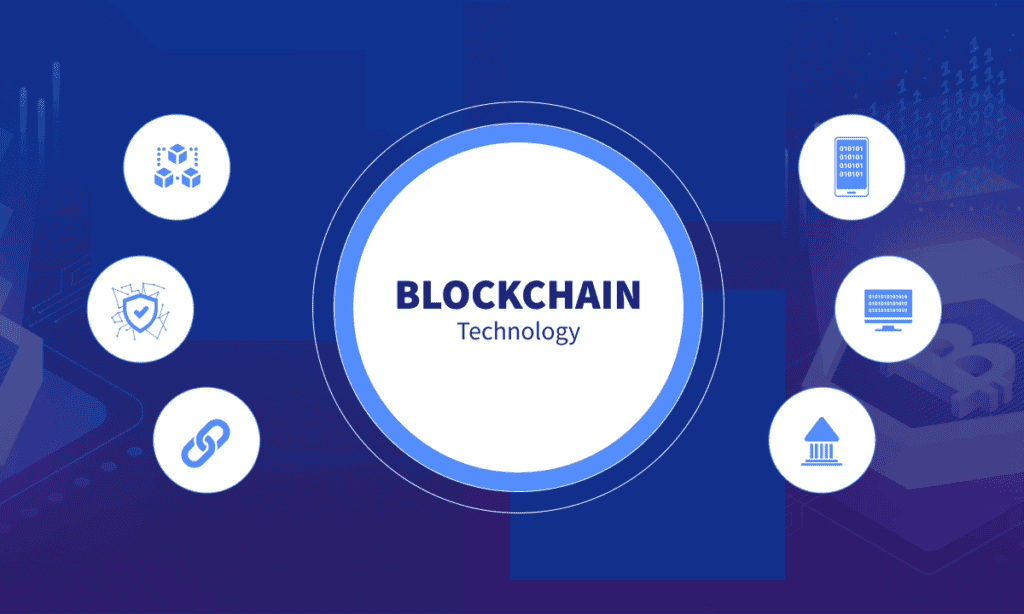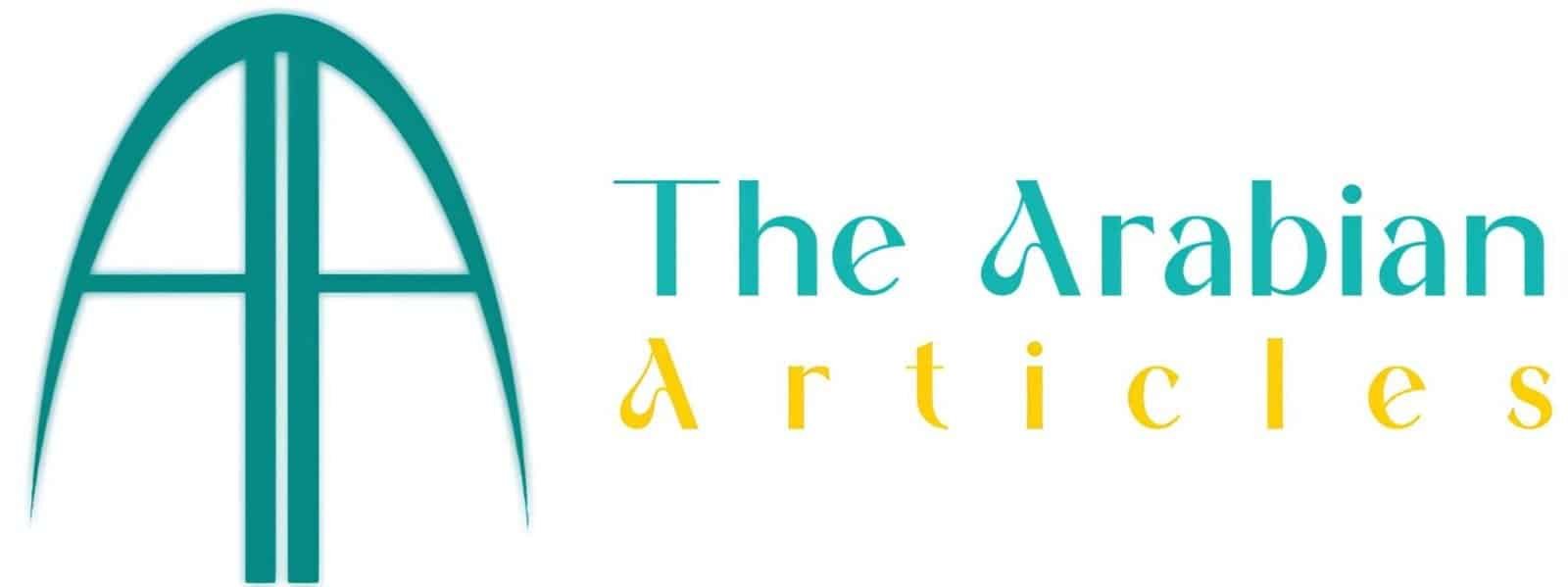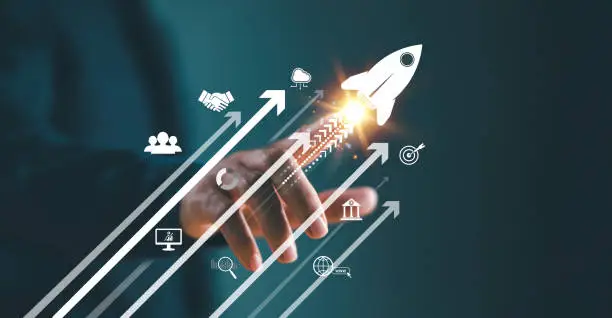The Middle East is no longer simply an energy giant—it’s quickly becoming a technology and innovation global leader. Among the most thrilling innovations driving this digital future is blockchain. From the smart government push in Dubai to Saudi Arabia’s Vision 2030, blockchain across the Middle East is revolutionizing the way businesses work, protect data, and establish trust.
But what does this mean for entrepreneurs, startups, and established businesses in the region? In this blog, we’ll explore how blockchain for business operations is changing the game and why it’s quickly becoming a foundation for the Middle East’s digital transformation.
Understanding Blockchain and Its Business Value
At its core, blockchain is a decentralized digital ledger that records transactions across many computers. It’s secure, transparent, and impossible to alter without consensus.
Why is this so revolutionary for businesses?
Because it enables:
- Trustless transactions without the need for middlemen
- Real-time data sharing with complete accuracy
- Smart contracts that automate agreements
- Improved cybersecurity and fraud prevention
- Enhanced transparency and compliance
For Middle Eastern businesses embracing digital transformation, blockchain is no longer just a buzzword—it’s a strategic tool.
The Rise of Blockchain in the Middle East
Governments in the Gulf region are leading the way when it comes to blockchain adoption. The UAE aims to have 50% of government transactions on blockchain through its Emirates Blockchain Strategy. Saudi Arabia, Qatar, and Bahrain are also heavily investing in blockchain projects across finance, real estate, healthcare, and logistics.
This region-wide momentum is creating massive opportunities for blockchain technology in UAE and throughout the GCC.
Transforming Business Operations with Blockchain
Here are some real-world ways blockchain in the Middle East is reshaping business operations:
1. Transparent Supply Chains
In sectors like oil & gas, construction, and food distribution, supply chain management is often complex and opaque. Blockchain introduces full visibility across every stage.
Companies can:
- Track products from source to delivery
- Detect delays or errors instantly
- Prevent fraud and counterfeiting
- Ensure ethical sourcing and sustainability
This level of transparency builds customer trust and improves compliance with international standards.
2. Smarter, Faster Contracts
Smart contracts are blockchain-powered agreements that execute automatically when set conditions are met. They remove the need for intermediaries and reduce human error.
For instance:
- Real estate deals in Dubai are being streamlined using smart contracts
- Insurance claims are processed automatically, saving time and costs
- Freelancers and contractors get paid instantly after task completion
This is a huge benefit for startups and SMEs looking to operate efficiently.
3. Secure and Efficient Payments
Secure transactions are one of blockchain’s biggest strengths. Businesses can now:
- Send cross-border payments with lower fees
- Reduce transaction time from days to seconds
- Eliminate third-party banking delays
- Prevent double-spending or fraud
Fintech companies in the region are already leveraging enterprise blockchain solutions to make financial services faster and more inclusive.
4. Boosting Data Integrity and Cybersecurity
With increasing cyberattacks and data leaks, data security has become critical. Blockchain offers an unchangeable record of all digital activity, which:
- Protects sensitive information
- Helps meet strict data compliance laws
- Builds trust between companies and users
For sectors like healthcare and finance, where trust is everything, blockchain is a game-changer.
5. Streamlining Government and Regulatory Services
Governments in the Middle East are using blockchain to improve public service delivery. For example:
- Dubai’s Land Department uses blockchain to handle property registrations
- Bahrain’s Central Bank supports blockchain-based fintech regulation
- Qatar’s Digital Government uses blockchain for e-document verification
By automating bureaucracy, blockchain helps businesses register faster, pay taxes easily, and stay compliant.
Key Industries Leading Blockchain Adoption in the Middle East
Several industries are embracing blockchain at full speed in the region:
Finance and Banking
Banks and fintech startups are using blockchain to offer better payment services, reduce fraud, and create decentralized finance (DeFi) solutions.
Examples:
- Emirates NBD’s blockchain-based cheque clearing
- ADGM’s regulatory sandbox for blockchain fintechs
Real Estate and Property Management
Blockchain allows for tokenized property ownership, transparent records, and smoother transactions. Investors and buyers get full access to property history without hidden issues.
Healthcare
Hospitals are using blockchain to secure patient records, streamline insurance claims, and share data across clinics safely. This enhances data integrity while saving time.
Logistics and Trade
The port cities of Jebel Ali and Dammam use blockchain to track shipments, cut customs clearance times, and reduce paperwork. This is essential for boosting global trade efficiency.
Challenges Slowing Blockchain Growth in the Region

Despite the excitement, there are still some roadblocks to full-scale adoption:
- Lack of understanding: Many businesses still don’t know how blockchain works or how to implement it
- Regulatory uncertainty: Some Gulf nations are still developing clear frameworks
- High implementation costs: Initial setup and training can be expensive
- Talent shortage: There’s a growing need for blockchain developers and experts
However, with government backing and growing awareness, these barriers are expected to shrink by 2026.
Why Entrepreneurs Should Pay Attention in 2025
If you’re an entrepreneur or startup founder in the Middle East, here’s why now is the right time to explore blockchain:
- You’ll gain a first-mover advantage in your sector
- Attract investors who are actively funding blockchain solutions
- Tap into government incentives and regulatory sandboxes
- Improve your operations, trust, and scalability
Whether you’re in fintech, logistics, healthcare, or real estate, blockchain for business operations is the future—and the future is now.
Getting Started with Blockchain in Your Business
Here are a few steps to begin your blockchain journey:
- Educate Yourself and Your Team – Attend workshops, read case studies, and consult experts
- Identify Use Cases – Start with one process that could benefit from blockchain
- Join a Pilot Program – Work with a local accelerator or incubator focused on blockchain
- Collaborate with Developers – Hire or partner with blockchain experts for implementation
- Stay Updated – Follow regional laws and best practices around blockchain
Final Thoughts: A New Era of Business in the Gulf
The digital economy of the Middle East is growing fast—and blockchain in the Middle East is one of its strongest pillars. For entrepreneurs and businesses ready to innovate, blockchain opens the door to faster, smarter, and more secure operations.
As adoption grows across sectors and borders, the companies that embrace blockchain early will become tomorrow’s leaders. So don’t wait—explore how blockchain can upgrade your business today.
READ MORE-
Business Voices 2025: The Influential Thinkers Redefining Success
Gadget Trends: Must-Have Tech Devices for Entrepreneurs in the Middle East





